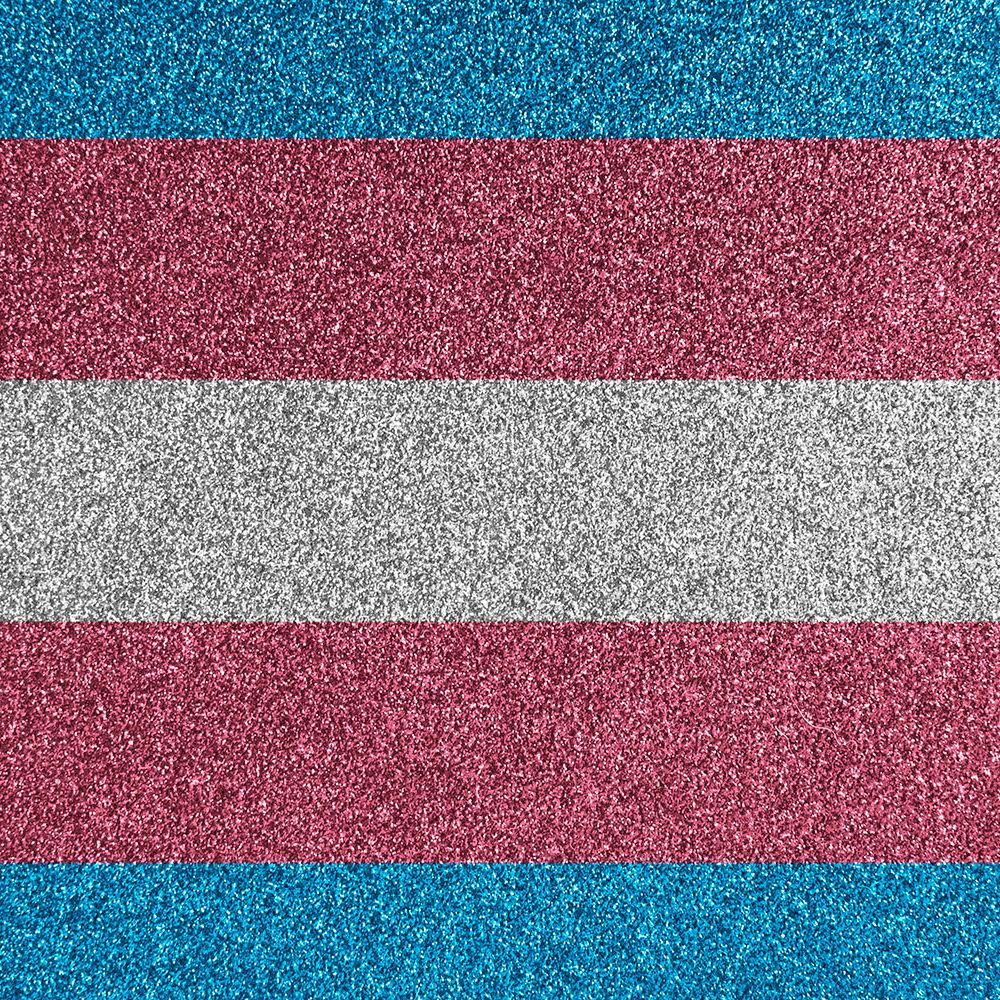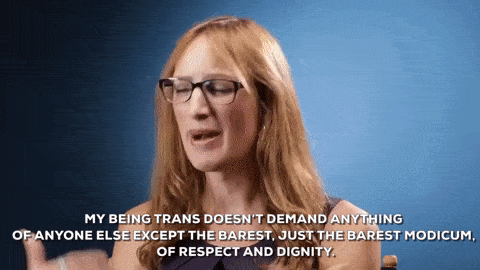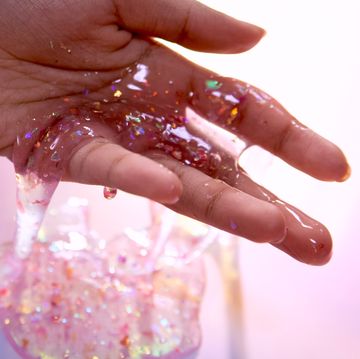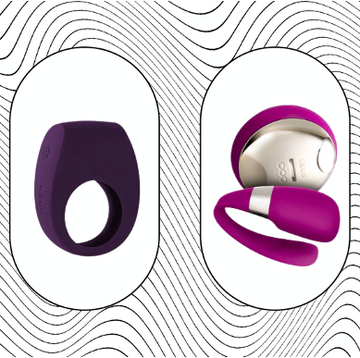Thanks to incredible trans women like Munroe Bergdorf and Laverne Cox, more and more people are feeling empowered to change their biological form to match their gender identity. But what is it like being (and dating as) a trans man? I chatted to pansexual trans man, J, heterosexual trans male, K, and non-binary, transmasculine person, Cas, to ask them what questions they’re constantly asked by cis people. FYI, these kinds of questions can be intrusive, offensive and disrespectful – so please, just don’t’ ask them.
1. “Aren’t you just a lesbian?”
Urm, can a man be a lesbian? In short, no! J describes the difference between sexual identity and gender identity as “two distinct things”. J explains, “Gender is who you are. Sexuality is who you do.” Some trans men can even find a sexual awakening once they begin their physical transition. K describes himself as a heterosexual male.
“I would have dreams about marrying women and being their prince,” he says. “But I just attributed that to an overactive imagination. Once I found the language to describe the discomfort I was feeling, I began to slowly love myself enough to start seeing myself as a sexual being. At that point, I started realising that I was very attracted to women.”
2. “When are you going to have surgery? Do you have a dick?”
Trans men go through different stages of transition. And not all trans men want to make physical changes to their biological form, instead choosing to transition socially. For other trans men, physical changes aren’t an option. In the UK, gender confirmation surgery is covered by the NHS. Wait lists can be long though, and require a ‘social gender role transition period’ (a period of time living as the gender you want to transition into) of 1-2 years prior to surgery.
K, who’s living in the US, is currently unable to take steps to physically transition. “I plan on doing all of these things, I just have to wait until I’m financially and safely able to do so due to my personal situation between me, family, and work.”
Being unable to transition physically can lead to being misgendered, which can be very upsetting. “Trying to find someone ‘willing’ to date a trans man is challenging, especially if you're pre-T (testosterone, a male hormone taken by trans men during physical transition) pre-op, etc. A lot of times I get, ‘Oh, sorry I'm not into girls’, which is incredibly frustrating,” K continues. “Any time I face rejection from someone, I constantly worry whether the person genuinely wasn’t interested because we weren't meshing well, or if it's because I'm trans.”
Luckily for K, he found a partner who helped him through the early stages of his transition. “She bought me my first pair of boxer briefs, and encouraged me to get a binder and stop shaving my legs and armpits. Thanks to the support of her and my friends, I began to become more confident with my body, and felt like I was able to be sexual without nearly as much insecurity.”
3. “Do you like having sex all the time?”
For some trans men, especially those who haven’t yet began their physical transition, sex can be a difficult subject. As Cas explains, their biological body affected their sexuality, “I actually identified as asexual for many years. Looking back on it now, this came from a combination of gender dysphoria (a term used to describe discomfort at someone’s biological identity being different to their gender identity) and anxiety. I'm not saying this is the case for everyone who identifies as asexual, but I had a lot of internalised transphobia.”
They mention that this was because they felt “repulsed” by their biological form, but not understanding why. “Trans people are often either hypersexualised, or totally desexualised,” they explain. “And I went for the latter, embracing it as a form of self-protection. I thought that if I said that I was asexual, then I would stop people from sexualising the body that I struggled with so much.”
4. “Will taking testosterone just make you more angry?”
Many trans men who take T explain it’s like going through a ‘second puberty’. As well as physical changes like increased hair growth, periods stopping and even changes to muscle formation, there can also be some emotional changes too - just like being a teenager. This can be challenging in relationships. J says, “It’s helpful to understand that when we begin hormone treatment, it is basically second puberty, so forgive us for acting like moody teenagers at times.”
Just like a relationship between cis-gendered people, if you’re dating a trans man, it’s important to check in with each other about how you’re feeling. Taking hormone replacement therapy (HRT) is an important step on the road to a physical transition, and if you’re dating a trans person, be aware they might need supporting through these changes.
5. “Are you more ‘in touch with your feminine side’ than cis men?”
Some trans men feel that because they’ve experienced life with a female-assigned body, they understand more about what life as a woman is like. J says he likes to think he’s more empathetic, and aware of his behaviour. “We've lived lives where people saw us as women, and experienced the misogyny, cat calls, and sexual harassment that women go through.” He’s adapted his behaviour to make women feel more comfortable around him in the past, but knows that not all trans men do the same. “Some trans men can get caught up in the toxic masculinity, however, as we do feel that we have to act or behave in certain ways to be seen as a man.”
Cas agrees, saying, “There's a temptation for people to say that trans guys are more sensitive, understand misogyny better, and are more in touch with their emotions. That may be true for some, but don't take it as read; get to know a guy first!”
6. “How do you have sex?”
Ugh, this old chestnut! Sex comes in many different forms. When taking T, the clitoris can get bigger and increase in sensitivity, leading to some serious pleasure. For some trans men who take T, some of these physical changes can be difficult to get used to.
“It's a lot more sensitive than it used to be, and we can end up enjoying different things sexually, as well as experiencing dryness down there,” J says. “Since transitioning, I've had the best sex of my life, met the best partners, and I’m the most comfortable I have been, especially when trying new things and switching roles.”
Some trans men who don’t take T can find sex difficult. K tells me that it’s all about communication. “As a result of not being on T and not having the ‘proper equipment’, I don't like receiving pleasure from my partners. To compensate, I tend to be a giver... I guess it's just dependent on the person, and the roles they like to take on in their sexual relationships.”
Nothing new there, then!
For more information and advice about trans masculine issues, visit Trans Masculine Support and Advice UK and Sparkle.
You can find Lottie blogging at Lottielamour.co.uk, or follow her on Twitter and Instagram.
















